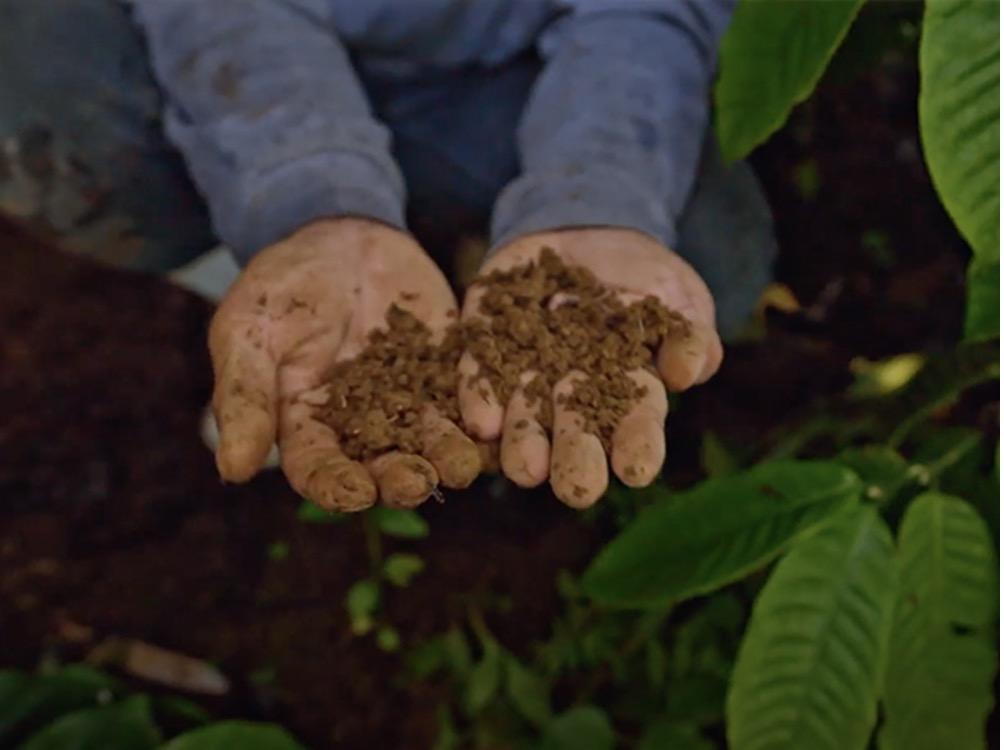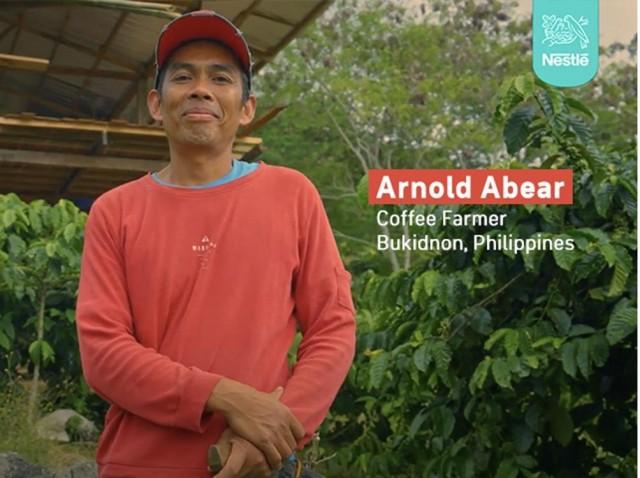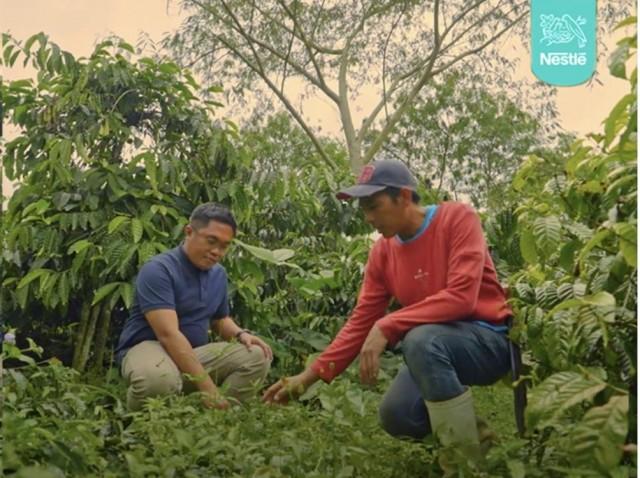Brewing a sustainable coffee future

Many of us start our day with a cup of coffee. As its sweet and nutty aroma spreads throughout our senses, have we ever wondered what the connection of our ‘perfect’ brew and the environment really is?
Coffee lovers should be aware of the factors that go into making this popular drink. In order to produce good coffee beans, growers must have the right quality of soil, temperature, and amount of rain, which are all greatly affected by the increasing threat of climate change. Aside from these, they also face additional hurdles like crop pests, diseases, and soil depletion. While these remain, businesses and farmers alike are working together on a plan to make sure we get to enjoy coffee and protect the environment as well.
Sustainably produced coffee begins with people like Arnold Abear, a coffee farmer from Bukidnon, Philippines. Arnold considers himself a “Kasambuhay ng Kalikasan.” He is one of the many coffee farmers who have been introduced to Regenerative Agricultural practices, which focus on balancing conservation and commercial production of crops.

Most farming systems deplete the soil of its nutrients over repeated harvests, which then affect the quality of crops like coffee. Regenerative Agriculture, however, aims to revitalize soil health and its surrounding ecosystem.
Nestlé’s NESCAFÉ Plan introduced, among others, four common practices of Regenerative Agriculture: composting, which breaks down organic materials to serve as fertilizer for crops; intercropping, or the practice of growing two or more kinds of crops next to each other; agroforestry, which combines the use of trees and shrubs into the farming system to avoid soil erosion; and using cover crops to cover the soil with plants that can help protect and improve soil health. All these practices aim to bring back the fertility of the soil and to improve economic and environmental diversity. With good soil comes good coffee, which in turn brings a better life for the farmers and food security in the country.

Arnold and about 1,500 of his fellow coffee farmers were introduced to this holistic approach to farming from 2018 onwards. Since making the switch from his old farming style, Arnold shares that his crops have greatly improved.
The future of coffee in the Philippines starts with farmers. When we empower them with the right agricultural practices and improve their standard of living, they can help create a sustainable coffee industry right at the start of the supply chain. For farmers like Arnold, this means bountiful harvests; for coffee lovers, it's a guarantee that they can continue to enjoy their best-loved drink for years to come; and for the planet, it’s a way to protect the land for the next generation.
As responsible coffee consumers, we must be mindful of how our love for coffee impacts the environment. To know more about sustainable coffee and its farmers, follow NESCAFÉ on their Facebook page for more related stories.




